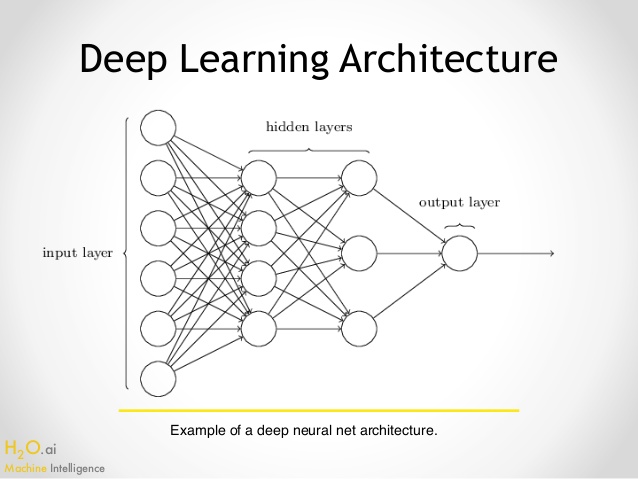Deep learning: Difference between revisions
18barlow d (talk | contribs) |
18barlow d (talk | contribs) |
||
| Line 23: | Line 23: | ||
It feeds the weighted sum of the inputs into the logistic function. The logistic function returns a value between 0 and 1. When the weighted sum is very negative, the return value is very close to 0. When the weighted sum is very large and positive, the return value is very close to 1. For the more mathematically inclined, the logistic function is a good choice because it has a nice looking derivative, which makes learning a simpler process. But technical details aside, whatever function the neuron uses, the value it computes is transmitted to other neurons as its output. In practice, sigmoidal neurons are used much more often than linear neurons because they enable much more versatile learning algorithms compared to linear neurons.” (KDNuggets) | It feeds the weighted sum of the inputs into the logistic function. The logistic function returns a value between 0 and 1. When the weighted sum is very negative, the return value is very close to 0. When the weighted sum is very large and positive, the return value is very close to 1. For the more mathematically inclined, the logistic function is a good choice because it has a nice looking derivative, which makes learning a simpler process. But technical details aside, whatever function the neuron uses, the value it computes is transmitted to other neurons as its output. In practice, sigmoidal neurons are used much more often than linear neurons because they enable much more versatile learning algorithms compared to linear neurons.” (KDNuggets) | ||
== Examples == | == Examples == | ||
Revision as of 08:52, 13 September 2017
This is student work which has not yet been approved as correct by the instructor

Introduction[edit]
Deep learning is a subfield of machine learning and is primarily focused on modeling computers off of the neurons and synapses in the human brain to better advance a computer’s ability to learn. Instead of writing programs we can write algorithms that can be trained by being shown examples to then solve the same problem in new situations.
[2]
How does it work or a deeper look[edit]
Deep learning attempts to create better AI by using a model of computing that is similar to the human brain with neurons. This model of computing is called a neural network.
“Each neuron has a set of inputs, each of which is given a specific weight. The neuron computes some function on these weighted inputs. A linear neuron takes a linear combination of the weighted inputs. A sigmoidal neuron does something a little more complicated:
It feeds the weighted sum of the inputs into the logistic function. The logistic function returns a value between 0 and 1. When the weighted sum is very negative, the return value is very close to 0. When the weighted sum is very large and positive, the return value is very close to 1. For the more mathematically inclined, the logistic function is a good choice because it has a nice looking derivative, which makes learning a simpler process. But technical details aside, whatever function the neuron uses, the value it computes is transmitted to other neurons as its output. In practice, sigmoidal neurons are used much more often than linear neurons because they enable much more versatile learning algorithms compared to linear neurons.” (KDNuggets)
Examples[edit]
Please include some example of how your concept is actually used. Your example must include WHERE it is used, and WHAT IS BENEFIT of it being used.
Pictures, diagrams[edit]
Pictures and diagrams go a LONG way to helping someone understand a topic. Especially if your topic is a little abstract or complex. Using a picture or diagram is a two part process:
External links[edit]
- It would be helpful
- to include many links
- to other internet resources
- to help fellow students
- Please make sure the content is good
- and don't link to a google search results, please
